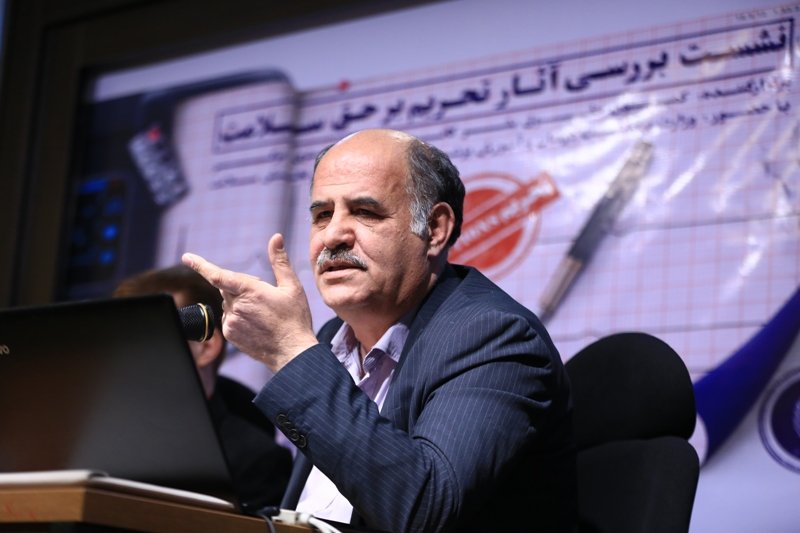‘U.S. committing war crime by hampering medicine transfer to Iran’

TEHRAN- U.S. unfair sanctions against Iran is indeed an obvious example of war crime as it has denied Iranian patients having access to medication and their basic needs, said the head of Iran Hemophilia Organization.
“Imposing sanctions on a country is the same as getting into a war, but there are no rules when it comes to sanctions; however, there should be certain rules and restrictions so that people do not have to suffer irreversible damages,” said Ahmad Qavidel in a meeting on Tuesday to analyze sanctions’ effects on the right to health.
U.S. President Donald Trump withdrew Washington unilaterally from the 2015 nuclear deal in May 2018 and ordered sanctions against Iran. The first round of sanctions went into force on August 6, 2018 and the second round, which targets Iran’s oil exports and banks, were snapped back on November 4.
“U.S. is lying that sanctions do not include medication. Currently, many foreign pharmaceutical companies have representatives in Iran but we cannot purchase their products because sanctions have restricted our banks in their transactions,” IRNA quoted Qavidel as saying.
“Lawyers should help us, so that the enforcement of sanctions are controlled by certain rules and restrictions. We can’t just sit back and watch people die; we have to take actions.”
“Nothing will be solved with Europeans’ words of sympathy; rather, we should try to start negotiating with Europeans and we should also reveal the true face of Trumpism to the world, the idea behind Trumpism will encourage racism and indifference in the world.”
“U.S. is lying that sanctions do not include medication. Currently, many foreign pharmaceutical companies have representatives in Iran but we cannot purchase their products because sanctions have restricted our banks in their transactions.”
“We appreciate the support of Iran BAR association, as the medical associations and organizations have to translate their needs and problems into legal terms and statements,” Qavidel finally remarked.
Over the meeting, the director of drugs department at the Iranian Food and Drug Administration said there are foreign currencies available but no banks would accept them, so supplying medications is disrupted and the prices keep rising.
“Our only option now is to seek legal help, as the patients expect us to provide them with medicine,” Mohammad Abdzadeh noted.
“U.S. has the temerity to threaten to stop its collaboration with the companies who work with Iran; this, has even a more adverse effect than the sanctions itself,” Abdzadeh added.
“We can’t transfer the money to supply bandages for patients suffering Epidermolysis Bullosa (EB), and we have resorted to asking one company to do it for us,” the official regretted.
“People are being very tolerant, but the authorities must increase their efforts, many sectors are mismanaged, and we even have problem in transporting the medications properly,” Abdzadeh remarked.
Over the meeting, the head of EB Health House in Tehran announced that EB patients have been out of bandages since the beginning of the second Iranian calendar month, Ordibehesht (April 21, 2018).
“The former health minister had provided EB patients with free bandages but with the current shortage, the patients have become desperate,” added Hojjatoleslam Seyyed Hamid Reza Hashemi Golpaygani.
SJ/MQ/MG
